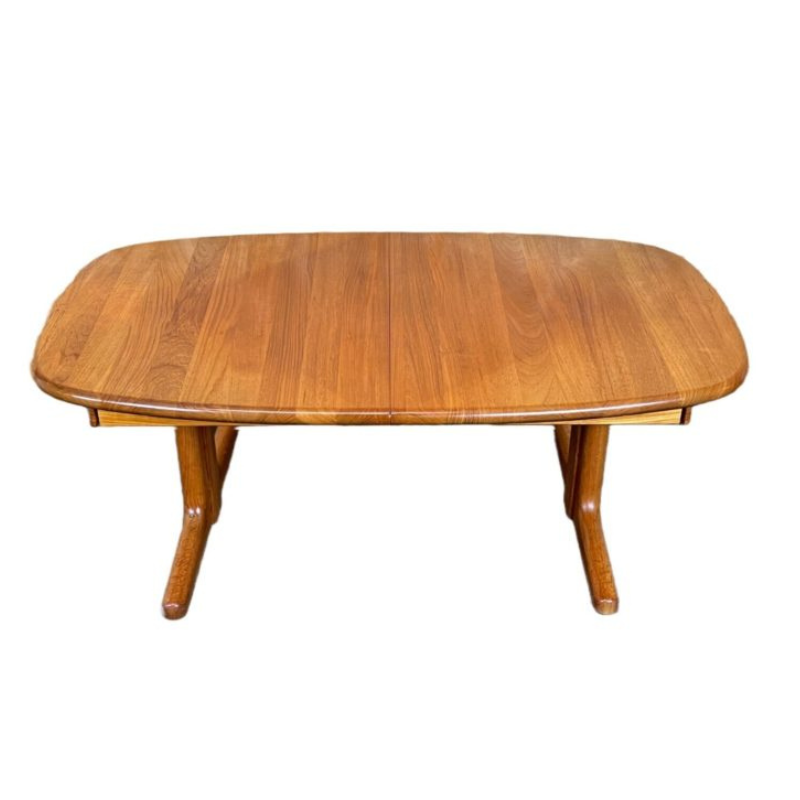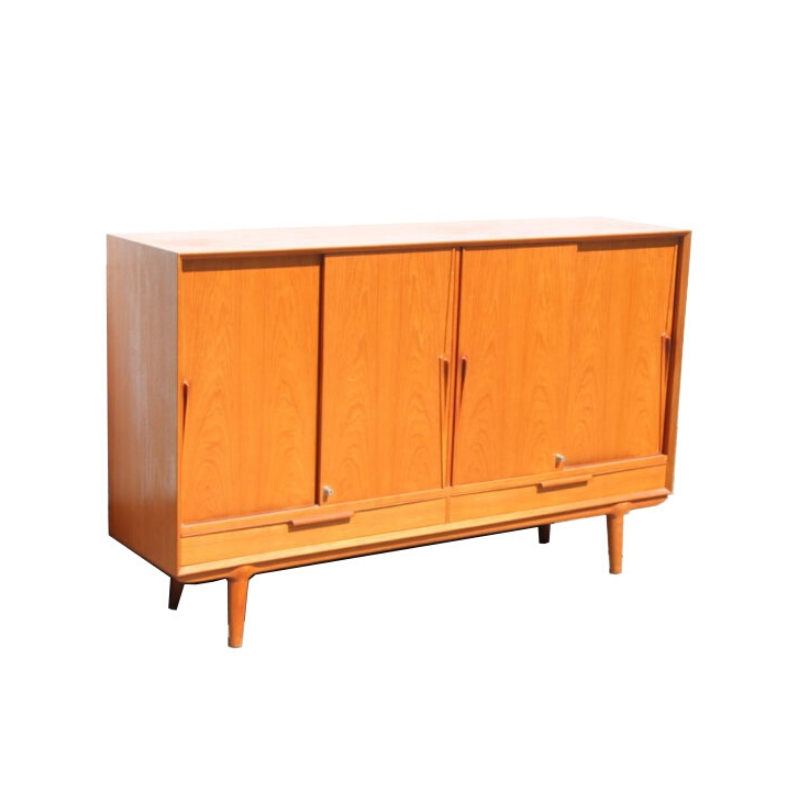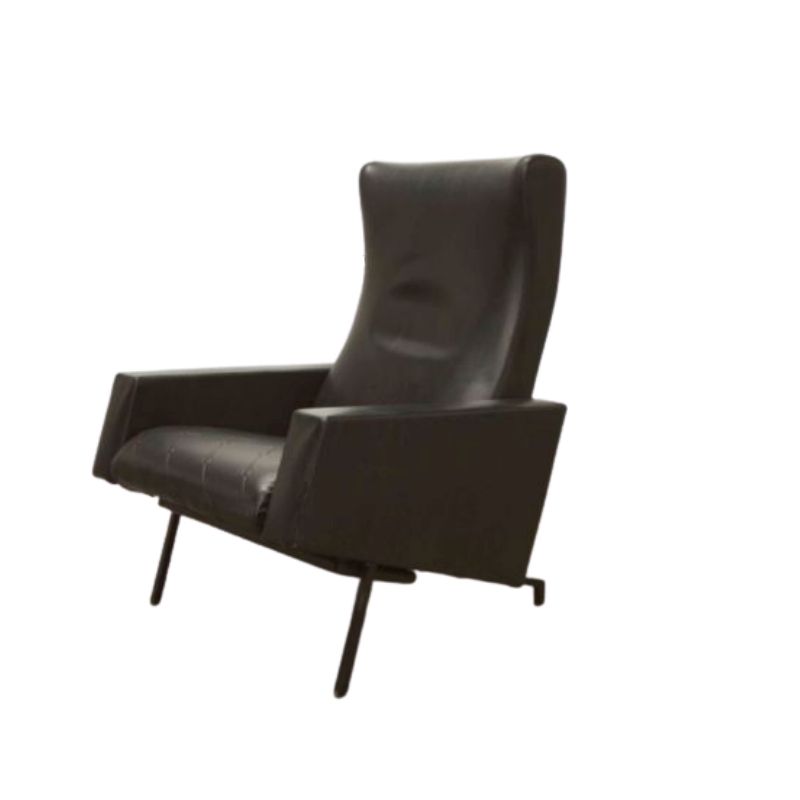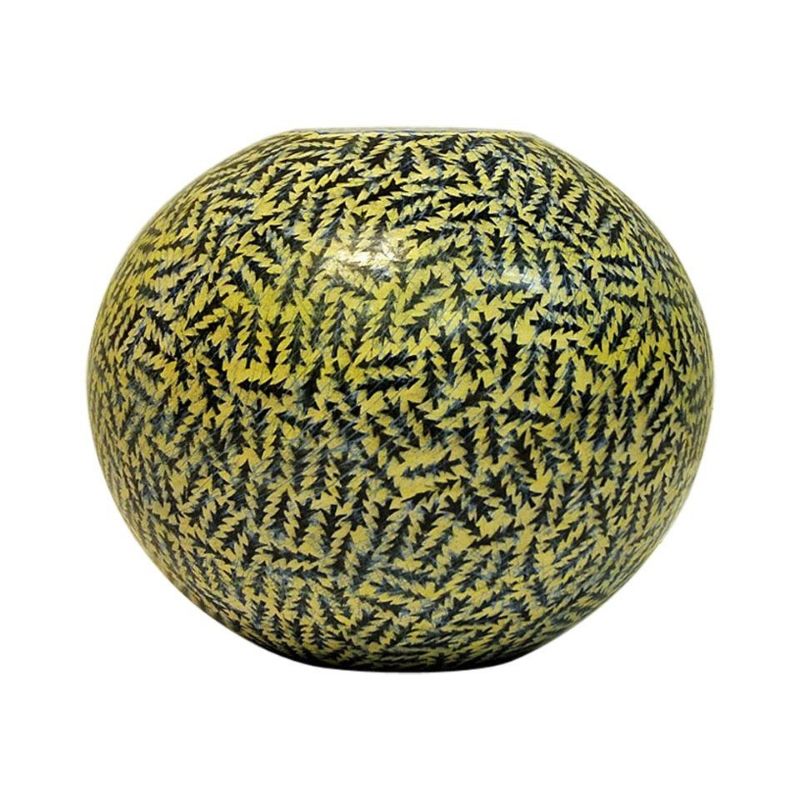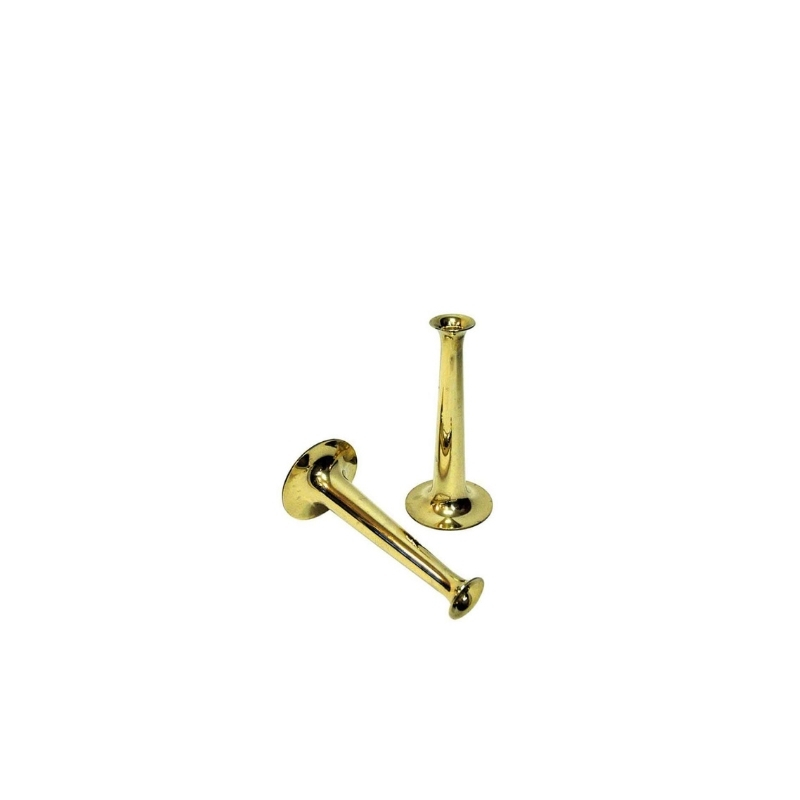I have often wondered myself.....
why it was so difficult to make an industrial product as engaging emotionally as a work of art or as a good craft object. I explored different solutions, including transforming the industrial process in such a way that in spite of using rigorous industrial methods and tooling the resulting product would be unique.(part of the mould would position itself randomly with an ever changing end result) But as expected I soon found out that it was not the uniqueness that creates the emotion. Art explores freely both ideas and emotions and sometimes emotional ideas. It does so by using a form and colour language that is the least possible influenced by technology...although Jan Van Eyck painted some masterworks (early Flemish renaissance) with the amount of blue specified as part of the contract...
Design is preoccupied with both the objective and subjective functions of objects and does so within the restrictions and possibilities of industrial production. The purpose of these objects is to serve us in one capacity or an other and in most cases they are an extention of our own body (in some cultures this is more acknowledged than in others) Even less "tool-like" objects are often refered to in terms of extentions of our body. Television like telephone refers to seeing of talking "far away" More recent developments and banalisation of these instruments have also changed the notion and a "Cell" refers to the cellular technology of the original network of antennas and transmission towers....but that's a side step. We also expect from these objects to give us some emotional satisfaction and to some extend they do. For a while the simple possession of a i-phone will be a source of pride for the owner and give her or him with the feeling to be somewhat better than most of us. It is within that context I think, of expecting some emotional satisfaction that we as designers try to create that emotion. The Bauhaus reacted to a large extend against the dominant expectation that objects or products should be and had been for quite some time means of class distinction. They felt that in an industrial society that could give everyone what he or she needed, this class distinction was highly inappropriate...It is indeed an interesting situation that time and the rarety of their objects has made them again a social status symbol...
cont.
They are as you mentioned not as beautiful as often pretended and it has taken the Eames' and the scandinavians (one could say just the scandinavians because Cranbrook where the Eames' were educated was basically a scandinavian enclave in the american education system) quite an effort to humanize the harsh Bauhaus principles in something that would become acceptable. Eventually I came to believe that beauty in industrially made objects is quite different from the emotion-exploring kind that we find in the arts. At the same time both technology and the information explosion has created a market for art/design objects. They are neither viable as expressions of a particular culture nor as industrially made objects but extensive media attention has given them both the status of cultural objects and of widely distributed objects (even if it is only virtual) In reality they are produced in ridiculously low numbers and manufacturers are often disillusioned by the small "real" results compared to the high "visibility" these products generate...even that is just a side step...
I came to believe that objects especially industrialy produced objects can not and should not be given the task or the role to generate emotional response. In most cases where it is done succesfully the emotional response can not be repeated and although the lifetime of the product is much longer the originality is gone and so we discard it well before the end of it's functional life. In not generating emotions I include irritation and so it became important for me as a designer to design products not without beauty but with the kind of aesthetical balance that makes it a true extention of our own "inbuild" tools. I would like to live with products that are like my legs...not beautiful, but no source of irritation either, well made, easy in maintenance and unless destroyed, repairable with patience. They serve me well, allow me to stand, to walk, to sit down and subsequently stand upp and they have an inbuild system that warns me when I am overusing them. I would like my emotional response to products to be limited to the unfortunate event that I loose one of them, not limited to the moment I buy one.
First...Pt 1
Koen's thoughts on this are about a thousand times more important to pay attention to than mine, since he has lived the designer's life and I have not. And, like you, I am learning reading what he has to say.
For what its worth, I think all persons in all professions face a similar conflict between doing expressive work (artistic work we may or may not get paid for) and functional work (problem solving we get paid for).
I know I was always torn between a desire to write novels and poetry on the one hand, and on doing the real estate consulting work I was trained to do for which there was a lot of demand for. Why was the former so emotionally fulfilling to do, while the latter was fulfilling mostly on levels of mastery of technique and monetary reward? I wanted it to all come out of one thing. I was trying to treat my work like a wife. I want you to be all things to me. Well, my wife let me know she wasn't all things, and didn't want to be all things and so has my work. My wife and my work want to be what they are, not what I want them to be.
First...Pt 2
For a time, I even compromised my love of prose and poetry and tried screen writing in order to find some kind of writing that would pay the rent. What I learned was that screen writing was the worst of all possible worlds for me, anyway. It was technical mastery of plotting and characterization through gesture and dialogue and motion (a mastery I never achieved by the way), without the fulfillment of finishing it as a film. I loved writing the screenplay, even bad ones, but then hated the very thought of turning it over to someone else to make into a movie.
Having thus simultaneously faced the reality of my limitations AND the reduction of writing to mere technical mastery, I licked my wounds for awhile and thought life was a bad joke played by sadistic gods.
Then it occurred to me that a human being is entitled to feel good about himself for doing what he likes whether he is good enough to be paid for it or not. In the same insight, it occurred to me that it is okay to pay the rent how ever you can. And that you can and should take a great deal of pride in doing the best that you can do at what you do expressively and at what you do to pay the rent. all work is important. i truly believe that. none of you, nor me is any better than a field hand or tomato picker, unless we do what we do better than they do what they do. I'm from the Studs Terkel school of valuing ALL work. To devalue any work is to use work as a weapon to oppress people. Oppressing people through denigrating the kind of work they do is as despicable as denigrating them for the way the look or breath. Work, doing something, is as organic to a human being as drinking and eating. And when they are not doing it it is because they have been sickened or injured by the use of work as a weapon of oppression. Whatever work you do is good if you do it good. This is perhaps the most profound lesson I have learned in my life.
First...Pt 3
The world will always tell you in no uncertain terms when it won't pay you for what you do (either the art that expresses you or the functional problem solving that you are trained for) and that's unpleasant, but necessary and useful feedback, too.
But never listen to the world tell you not to do things you love, or like, for nothing, because you are not good enough. Never say I can't get the satisfaction from design that I need because no one will pay me to do it artfully, or they reject it when I do it with total expression. If they won't pay for it, so what? Design it anyway and then design something else they will pay for, or paint a picture, or sculpt some stone.
I love design. I am here, because I love it. I sketch ideas at night, because I am deeply fascinated by formal solutions to problems, even the primitive ones I am capable of. I find the form languages and space programming and thought and construction processes used to design products and architecture deeply related to novel and poetry forms among my expressive interests, and among my more purely abstract interests of, say, computer programming, and among my more practical interests of financial and spatial feasibility in real estate and equilibrium strategies in game theory and strategic bargaining.
I participate in the DA designed flower vase project, because it is infinitely fascinating to me to see ideas emerge, evolve, fall away, advance, etc. There is not much probability that I will earn my living at design (although I have learned to rule nothing out).
First...Pt 4
Many of my acquaintances (none of my true friends fortunately) think I'm nuts for spending so much time thinking about design without getting paid for it, and in late middle age no less. I tell them that I have always pursued a variety of interests, some that pay and some that don't. I tell them age doesn't make me not care. A lot of them don't get it. It doesn't seem a mystery to me, but perhaps it is. I look at them and think, what, are you crazy? You think I should turn down a chance to learn how to speak and maybe do some design because I'm 53? Are you nuts? There's a dozen persons here smarter than me who are willing to help me understand something as fascinating as design, and I'm supposed to go learn tennis instead? I played basketball as a kid. I skiied expert slopes. I scuba dived. I play bridge. But design! This how things are made? Don't you get it, I tell them?
I've had two great questions in my life: 1) why are things where they are; and 2) why are they as they are and not some other way? My real estate career allowed me to explore answers to the first question. Design allows me to explore answers to the second question. And the most amazing side benefit of all is this: I'm out building gates and treehouses and stair cases now the way I used to build computer models, land use development plans, and strategic bargaining games, because I get how to design them, even though they do not measure up to the mastercraftsman tradition. And you want me to take up tennis? Now don't misunderstand me. I do want to take up golf some day, just not tennis. 🙂
First...Pt 5
But design! Its something I have to know! I HAVE to learn about. I don't want to die without knowing how some of the basic things I admire most in the world were created. I can die without knowing why ebola virus has intermitent but limited outbreaks (maybe because of it). I can die without knowing why people are stupid enough to think that privately owned central banks make sense. I know what I need to know about those things already. But design! Design is in the river. I am in the river. Design brings many divergent interests of mine together. It makes some sense out of them. I have no choice in the matter. I have to confront it, or get out of the river. If I get out of the river, I may as well be dead. I'm staying in the river. You come in the river, too. Maybe not my tributary, but some tributary. The water is fine and its a huge watershed...regardless of how you get paid.
I would say fuck money, but in fact having some is important. Ya gotta eat. Ya gotta have a roof. Ya need a pot to piss in. But ya gotta live to. Life is not either or. Life is not even both. Life is all. There's no one thing that is true, Hemingway said, its all true. My interests are not mutually exclusive and neither is expressive fulfillment and functional work. They just may not (probably will not) come from the same gig all the time.
First...Pt 6
I doubt that anyone pays Koen, good as he is, for designing stuff that is like a leg. They pay him for designing great products. If he tells them the concert hall is like a leg, they probably punch rem koohhaus on their speed dial. If Koen tells the guy he designs trash barrels for that he is really designing him a leg, the guy, probably named Maury, or Wo Fat, says, "what is it with these nice looking geniuses from Antwerp. I want a fucking trash barrel. I don't want a trash barrel called a fucking leg. I want a fucking trash barrel." And so Koen designs a trash barrel that works like a leg, but calls it a trash barrel, and the guy is happy and his customers are happy, and the world works a little better, and we're all a little happier because we all got the benefit of a leg without even knowing that that was what it was. Koen's inviting you into the river of designers by telling you about legs. He probably tells the guys at hippo design, its not leg enough and then turns around and walks out leaving them scratching their heads, saying, looks like we don't get to go curling today. get some new clay, he's using the leg metaphor again. i doubt he tells the clients this, or maybe he does sometimes because he views design as a party everyone should be in on. he's nothing if not inclusive. he includes me afterall and that's just about as damned inclusive as you can get in design.
Aside: say, Koen, where the hell is that garlic oven set that we proposed your company make last year? Could you not find a way to make it like a leg? Well, try thinking of it as an arm then. Are you going to let a few little challenges like designing a concert hall, starting teaching, keeping a business afloat, giving landmark lectures, tending a family, grand fathering, and digging a 40 foot trench keep you from satisfying my wife's garlic obsession?) 😉
First...Pt 7
So here's what I'm saying: Billy Wilder was a great screenwriter and fine director, but his passion was impressionistic art. Steve McQueen was, for my money, the coolest actor who ever lived (before he cracked up), but he loved car racing. Paul Newman, who was for my money, one of the best actors ever (Hud is the greatest anti-hero of all time, exceeding even Satan in Milton's Paradise Lost.), and he got to where he liked car racing as much as acting. Audrey Hepburn was one of the greatest actresses and clothes horses of all time, and yet she expressed herself finally most fully through UNICEF and children. Philip Johnson was a great architect, but what he really cared about most was his glass house and landscaping and ornamenting his property. Was it Auntie Mame who said, the world is a banquet and most poor suckers are starving? Come in the river. Design a floating serving dish. Koen will critique it and make it better. I will stir up an artichoke dip to die for. We'll have a party and you can make what you love and make what you get paid for and sometimes it will be the same thing and sometimes it won't. All the world wants you to do is make things a little better, so we can all have a better time doing what we do--dodging the bullets and bombs of mad men who never did what they loved, or simply loved evil.
azchick...
do not understand this Nelson reference. Please explain.
Regardless, I apologize if my long-winded, confessional, stream-of-consciousness approach to engaging the design student seemed a bad crucifixion to you, but when someone is at the crisis point of framing the question for their dissertation, they are usually at the threshold of their coping and some contact with the life force and the realities of another's life--especially one that, like mine, does not set too high of a standard--can make a difference.
An old professor of mine used to say, "in undergraduate school, we give you the question and the answer and test to see if you can memorize them. In the master's program, we give you the question, and you have to come up with the answer and we ask you to defend the answer. In the doctoral program, we ask you to make up the question and the answer and then we ask you to defend both. Each step-up in education is challenging, especially if you don't come from a family that has already scaled the mountain, but learning to formulate the question is really taking the training wheels off persons and they get stressed. I was just trying to put some life perspective on what the young person is going through. My apoloies if I was maudlin, or setting a bad example.
If you need any help, please contact us at – info@designaddict.com



